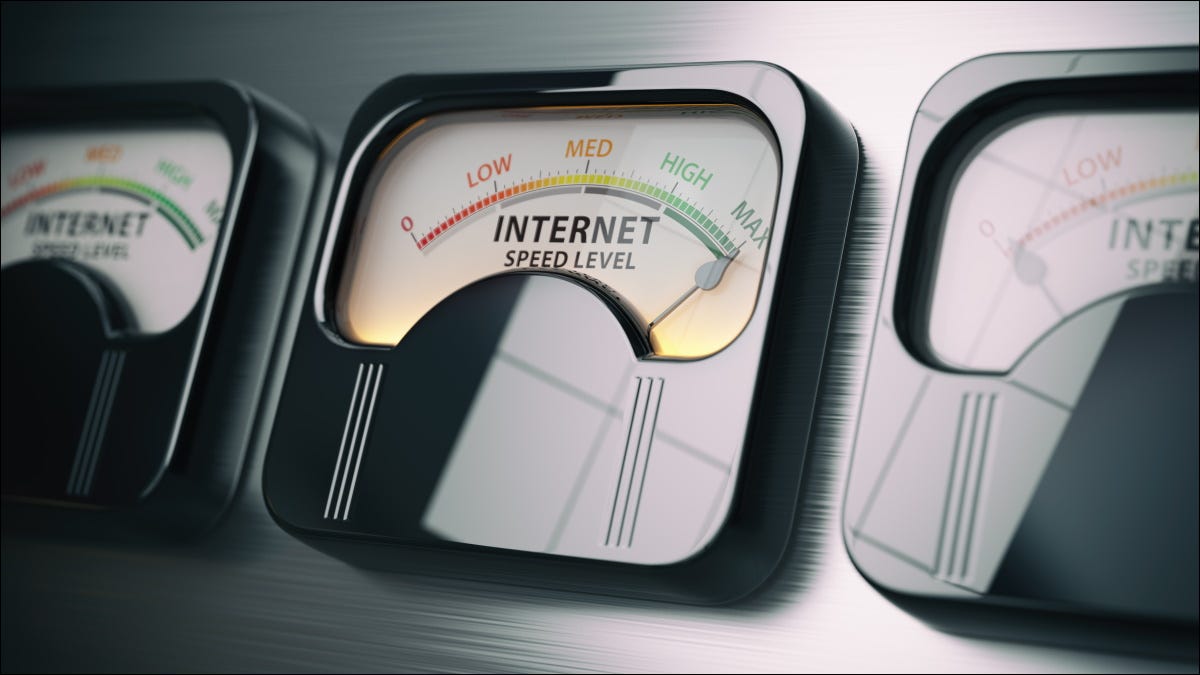Can a VPN Boost Your Internet Speed?
www.howtogeek.com – 2022-08-04 18:00:00 – Source link

VPN providers like to ascribe all kinds of wonderful powers to their VPNs. Some will say that they can offer complete anonymity while browsing, while some untrustworthy VPNs may even go so far as to claim to protect you from hackers. One of the weirder examples, though, is claiming that a VPN can actually speed up your internet connection.
Why Does a VPN Slow Down Your Connection?
Let’s make one thing clear from the outset: a VPN cannot speed up your connection under normal circumstances—there’s one exception we’ll talk about later. Any claim to the contrary is either just nonsense or somebody doing a poor job of performing their speed tests.
This is because of the nature of a VPN connection. When you connect to the internet normally, you connect to a server belonging to your internet service provider (ISP) and then to the site you want to visit. When using a VPN, you reroute the connection, so from your ISP’s server to a VPN server and only then to the site.
Distance Matters
This rerouting is the main reason you experience slow down. When you connect to the internet, you’re sending information through the connection and you’re getting information back. The farther the data needs to travel, the longer it takes; just because it exists in digital form doesn’t mean it’s exempt from the laws of physics.
This is something you can notice when downloading a large file. Generally speaking, connecting to a server on the other side of the world is a lot slower than one that’s located down the road. This effect is amplified when using a VPN. A server located in the same city or country as you will get you better speed results than one on the other side of the continent.
However, even a server that’s located just a few miles from you will slow down your connection, even if by just a few percentage points. This is not just because there’s still some extra travel going on, but also because of two other important factors, namely server load and encryption.
Other Factors
When you use a VPN, the data you send is encrypted on your end of the connection and then decrypted on the other side, when you get to the site you want to visit. This process costs time, not a lot, but it’s noticeable. If you were to send the data unencrypted, you’d probably notice a small difference in speed.
Another important factor is server load, or how many people are using any VPN server at the time you connect. Doesn’t matter how close the server is, if it’s overloaded with traffic, it’s going to slow down your connection.
Of all these factors—plus a few minor ones that have far less impact—distance is the biggest deal, with server load and encryption coming in second and third place, respectively. However, any of these factors prevent the speed of a VPN connection being faster than that of an unprotected one.
Speed Test Errors
That does raise the question why so many users—and reviewers—will occasionally claim that their VPN speeds up their connection. This can be down to one of two things, the most likely one being that they’re not very careful about conducting their speed tests.
Generally speaking, you test VPN speeds by first measuring how fast an unprotected connection is and then measure it again with the VPN on. The second measurement should always be lower than the first, but very occasionally will come out higher. So what gives?
When you connect to the internet, with or without a VPN, you always need to connect to your ISP’s server. Like any server, this one too can experience heavy load or something else that affects your speeds. If your first measurement was during one of those issues and your second measurement wasn’t, it could very well be that it comes out higher.
Thing is, an internet connection is a fickle thing, and there’s no way that you can measure it once and call it a day. This is why in our Surfshark review, for example, we measured its performance several times with an interval of a few hours. It’s the only way to get reliable results.
When Can a VPN Speed Up a Connection?
However, there’s an exception to all the above, the one case where a VPN can speed up your internet connection, namely when there’s some kind of block on a connection set up by your ISP. Usually called a bandwidth throttle, it’s a system that artificially limits your connection speed.
Bandwidth throttles can be set up by your ISP if the load on the system is too high, or if a specific user is seen to be using too much bandwidth at a busy time of day. They can also be employed in countries without net neutrality, like the U.S., if you’re visiting sites your ISP deems outside of your plan.
Bandwidth throttles are annoying, especially if they push your speeds below what’s acceptable for normal browsing or streaming. In this case, and only this case, a VPN can provide relief as it can circumvent the throttle in most cases and thus bring you back to a decent speed.
However, in any other case, a VPN can only slow down your connection, no matter what a VPN provider tells you. What sets a fast VPN apart from a slow VPN is simply that the former is less slow than the latter.





